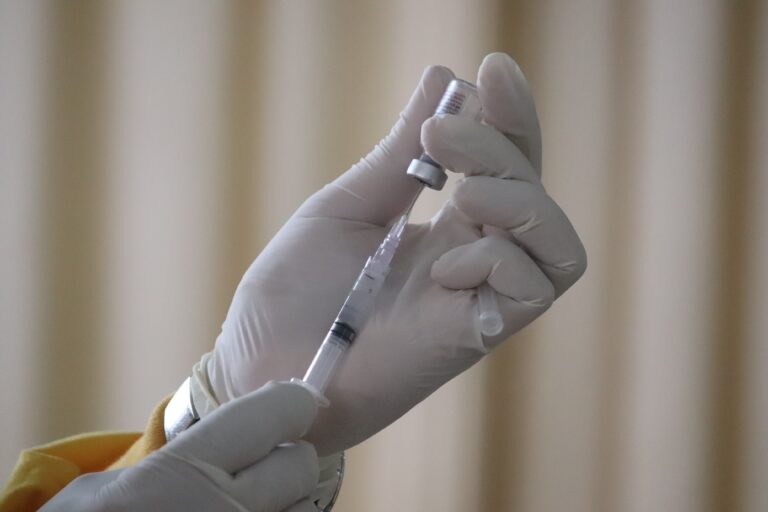Many respiratory viruses circulate year-round in the United States, and more activity is typically seen during fall and winter. The public is likely to be exposed to coronavirus, flu, and RSV in the coming months. Here’s what people should know about these viruses and the available vaccines.
RSV
Respiratory syncytial virus is a common virus that causes mild, cold-like symptoms but can be severe for infants and older adults. The virus is associated with approximately 58,000 to 80,000 hospitalizations in children under 5 years old, according to the Centers for Disease Control and Prevention. Premature infants and infants under one are more vulnerable to RSV.
The CDC also estimates that between 60,000 and 160,000 older adults in the U.S. are hospitalized and between 6,000 and 10,000 die due to RSV infection each year. Those with chronic heart or lung disease as well as older adults in nursing homes are more vulnerable to the virus.
Dr. Paul Offit, the director of the Vaccine Education Center and a physician in the Division of Infectious Diseases at Children’s Hospital of Philadelphia, said it is important for older adults who have chronic lung disease, chronic heart disease, or diabetes to get the RSV vaccine.
“If you look at who gets hospitalized and who dies from this virus, it’s primarily people over 70 and especially those over 80, and 98% of people who are hospitalized or die from this virus have some comorbidity,” he said.
The CDC recommends that adults 60 years and older may receive a single dose of the RSV vaccine. People should discuss it with a doctor first.
Dr. Offit, who is also a member of the Food and Drug Administration’s Vaccines and Related Biological Products Advisory Committee, said the vaccine protection can last through two seasons.
The CDC also recommends immunizing babies against RSV. All infants younger than 8 months who are born during, or entering, their first RSV season are recommended to receive one dose of nirsevimab, which is the monoclonal antibody for infants. For some children between the ages of 8 and 19 months who are at increased risk of severe RSV disease, a dose is recommended at the start of their second RSV season.
The FDA has also approved the first vaccine for pregnant individuals to prevent RSV in infants.
Flu
Flu is a contagious respiratory illness caused by influenza viruses that infect the nose, throat, and sometimes the lungs, according to the CDC. It can cause mild to severe illness, and at times can lead to death.
Dr. Amesh Adalja, an assistant professor at the Johns Hopkins University Center for Health Security, said people who are 6 months and older should get a flu vaccine every year before the start of the flu season. However, Adalja warned against getting the flu shot too early as its protection will wane during the season. He said people should plan to get the flu shot in October.
COVID-19
The CDC hasn’t published its recommendations for COVID-19 boosters for 2023 yet.
The agency currently recommends that everyone ages 6 years and older receive an updated (bivalent) mRNA COVID-19 vaccine, regardless of whether they previously completed their (monovalent) primary series.
People who are at risk for severe COVID-19 should get a booster as soon as it’s available, Dr. Adalja said.
He also recommends getting injections in different arms and cautions that everyone should anticipate possible side effects such as arm soreness and fatigue.
Side Effects Public Media is a health reporting collaboration based at WFYI in Indianapolis. We partner with NPR stations across the Midwest and surrounding areas — including KBIA in Missouri, Iowa Public Radio, and WFPL in Kentucky. Contact Side Effects Public Media’s health reporter Alex Li at ali@wfyi.org.
9(MDM5MjE5NTg1MDE1Mjk1MTM5NjlkMzI1ZQ000))

